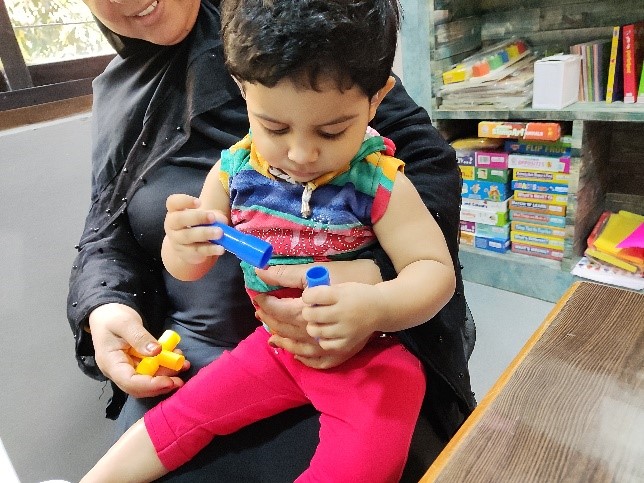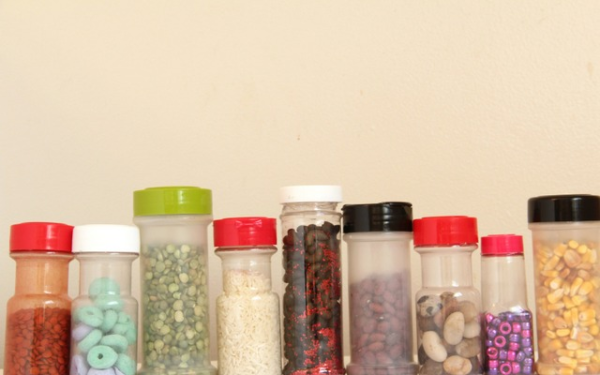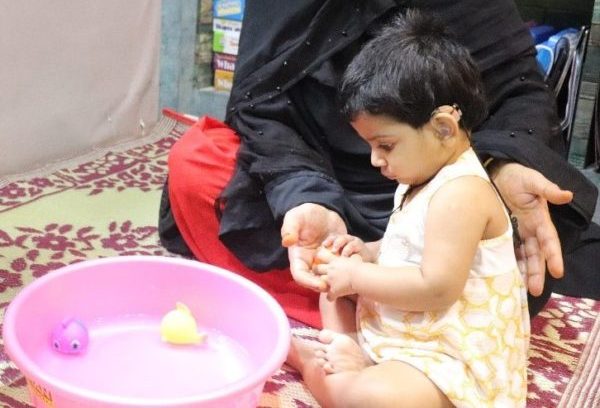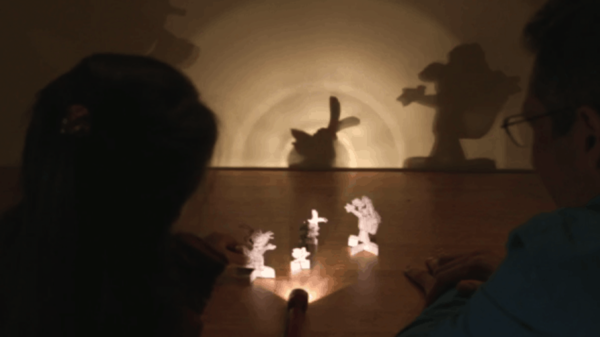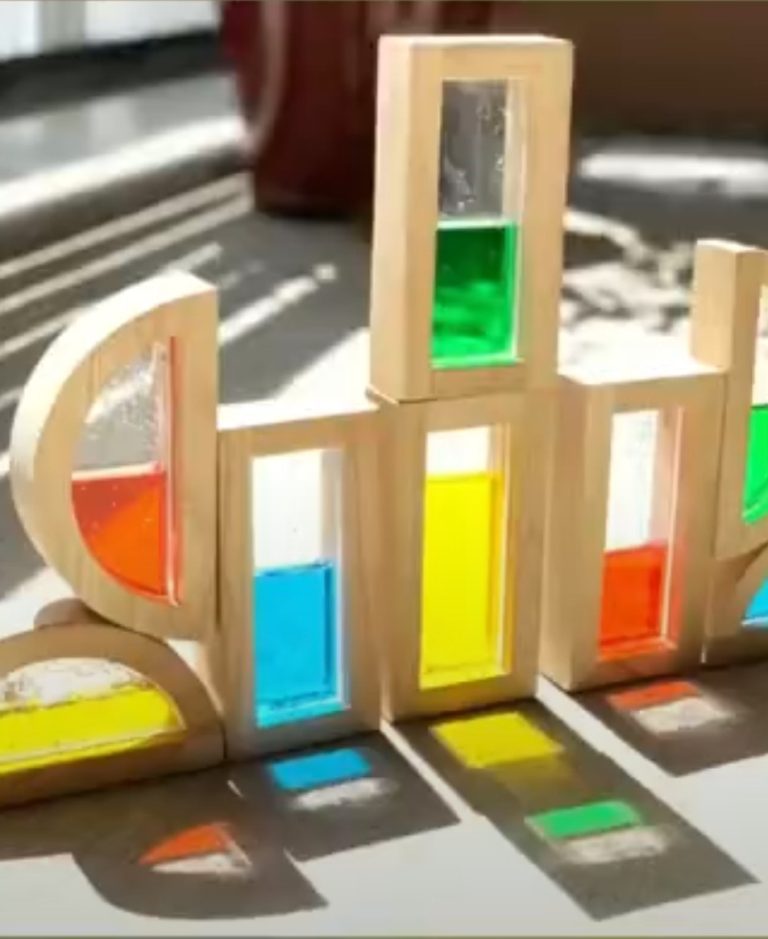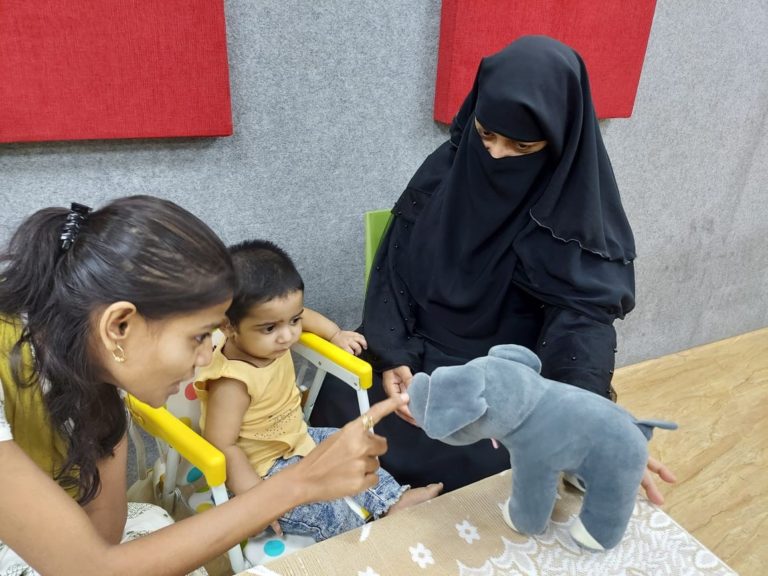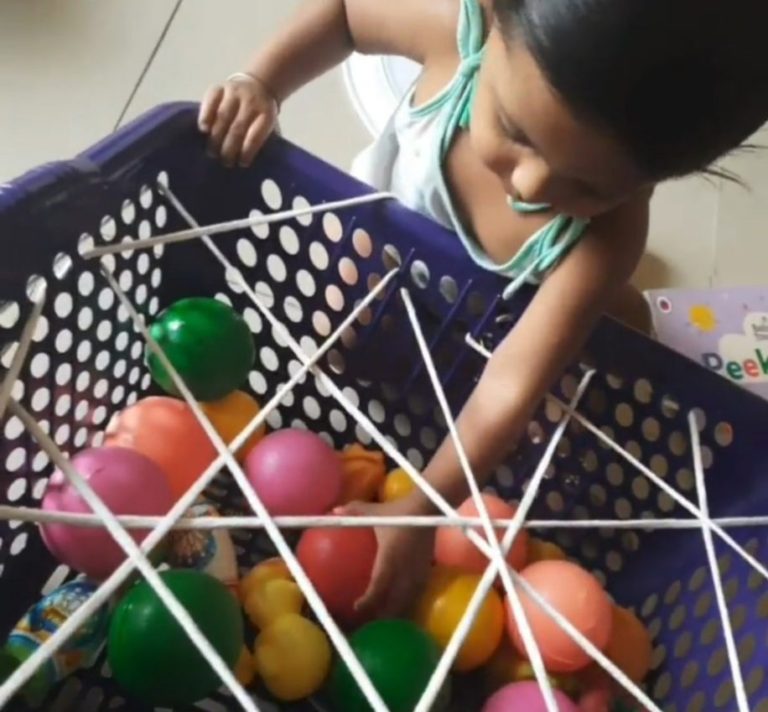09/03/2022
Play activities to engage your infant
There are certain skills that an infant develops by the age of 1 year, that’s right! One year! We as speech therapists work on these skills before we can actually work on the language of a child. Parents of a newborn can emphasize on these very well at home and ensure they are on the right path! Few skills* that an Infant needs to develop are:
- Auditory Awareness
- Auditory Discrimination
- Cognitive skills
- Exploratory Play
- Eye-hand coordination
- Fine and gross motor skills
- Audio-video association
- Visual/ Eye Gaze
- Visual/Eye tracking
Now We will look into the details of these skills
Auditory Awareness
Detection of the presence of a sound
Auditory Discrimination
Ability to recognize similarities and differences between sounds
Cognitive skills
Neuroscience and psychology focusing on a child’s development in terms of and other aspects of the developed adult brain and cognitive psychology
Exploratory Play
Exploratory play involves the child using all their Senses. They will examine objects by looking, touching (with hands and mouths), listening and moving it to learn about how they can influence the world around them
Eye-hand coordination
Ability of the vision system to coordinate the information received through the eyes to control, guide, and direct the hands in the accomplishment of a given task, such as scribbling or catching a ball. Hand-eye coordination uses the eyes to direct attention and the hands to execute a task
Fine and gross motor skills
Motor development is often broadly divided into gross motor and fine motor skills. Gross motor skills pertain to skills involving large muscle movements, such as independent sitting, crawling, walking, or running. Fine motor skills involve use of smaller muscles, such as grasping, object manipulation, or drawing
Audio-video association
Association of a sound with an image
Visual/ Eye Gaze
Fixing the eyes in a steady intent for a certain period of time
Visual/Eye tracking
The movements of the eyes in following a moving object
A lot of parents are unsure about the kind of games they can play with their infants in order to stimulate speech and language development and foster overall development. As speech therapists/ speech language pathologists and AV Therapists we also find ourselves counselling parents of newly born with more or less similar ideas that help them better engage their offspring. In order to help assimilate all ideas in one place and reach more worried parents we decided to list a compilation. Hope you enjoy reading and doing these fun activities!
- 1. Auditory sensory bottles
Growing up getting exposed to different sounds and associating meaning to them plays a crucial role in speech and language development. To facilitate the same parents can make small bottles filled with different items available at home: pulses, grains, beads, etc. Each of these when shook will emanate a different sound and this will help increase auditory awareness*, discrimination* and also serve as a tool for reinforcement and relaxation in between different activities. Cognitively* it facilitates exploratory play* and audio-visual association*. As the child’s listening abilities improve, speech is further facilitated
- 2. Water play
Infants love water, any activity any movement including water automatically tops their list of fun activities. You can use that to your advantage! All movements with water: splashing, scooping, pouring, etc. stimulates tactile senses, it improves their eye hand coordination* and facilitates fine and gross motor development*. Not to mention it can used for fun and relaxation as well, since it drains a lot of energy as well! Just ensure you give associated vocabulary according to the age of your child to stimulate language development, the words can range from sounds associated with playing (eg. Wow, yay, woosh, etc.) to verbs, adjectives, and prepositions (eg. Splash, pour, wet, on, under, behind, etc.)
- 3. Lights play
If you don’t want the mess of water, there are still neater options you can try, like playing with shadows! A simple torch or mobile flashlight can be used in a comparatively dark room (given the child is comfortable in such a setting) and different shadows through hand shapes can be used to pique a child’s interest. You can also use some colorful beads or other translucent objects to project different colorful patterns on the wall. This helps in stabilizing a visual gaze* and facilitates visual tracking*, also increasing the attention span. If the child is able to follow shadows, you can also encourage them to imitate your movements helping the develop fine motor skills. To work on their speech and language make sure you tell them what you are doing, what is made from your actions, where to look and encourage them to imitate not only your actions but also your speech
- 4. Anticipatory games
Games like peek-a-boo, hide and seek or tickle-tickle encourage the child to vocalize in response to your actions, and they also stimulate cognitive development as the child starts to anticipate or guess your movements. To further a child’s language understanding you can start giving vocabulary of different body parts used while playing, for eg. Eyes and hands for peek-a-boo or different body parts that you tickle, and family members can start giving in vocabulary of their relationship specially when playing hide and seek. You can also stimulate motor movement and thus gross motor development
- 5. Puppets and soft toys
Puppets and soft toys: Be it hand, finger or book all kinds of puppets are a kid’s favorite! Before you know they are imitating every action they see the puppet or soft toy doing, and this can be used to develop attentive observation, stimulate eye tracking and comprehension of different parts of language: be it emotions or verbs, puppets can be used for it all! You can use them to illustrate a story fostering their imagination, demonstrate a good habit or to simply catch their attention, with the right words you can use them to teach from the most basic to advanced language structures. Basically, these have an educational teaching value that can be used to foster social skills and also for their emotional and sensory development since infants are able to touch and feel them, thus helping them to relate to them better
- 6. Body Movements
Infants are all bubbling with energy, they want to move around, throw stuff, pull-push you name it. It’s time we put these actions to some creative use. Their love for pulling and throwing things can be stimulated for cognitive and language development with the use of very simple cardboard games. All you have to do is make pinholes in the cardboard and attach some strings on it, pull a little part of the string through the hole and give it to your infant; they will start pulling the strings on to the other side one by one. This helps them develop fine motor skills, eye hand co-ordination and instigates exploratory play in turn promoting their understanding of cause and effect. If your child has still not developed the fine motor skills required for pulling strings, you can take a cardboard box and throw their toys in the box, you can further tie strings on the open end of the box in a hap-hazard manner making it difficult for them to retrieve the toys or simply make some holes on one side of the box and encourage them to pull their toys from within. You can also simply stick toys on different surfaces with tape and encourage them to pull them free. These will also have a similar effect and promote problem solving. Other ways of promoting body movements include dancing on rhymes and encouraging imitation of soft toys performing different actions. All of these promote motor, linguistic and cognitive development, and help in relaxation. Don’t forget to continuously stimulate the child verbally telling them what they are or you are doing in order to develop their speech and language
With all these different ideas in mind, we hope you are well equipped with activities to stimulate your infant. The key is to encourage whatever they are playing and exploring, be it by themselves or by looking at you and bombarding them with the associated vocabulary. As long as they keep hearing about what they and others in their surrounding are doing, you are on the right path to speech and language development. Make sure to use voice modulation as it helps in catching the attention of the young and make a conversation with them, do not make them feel as though it is a teaching session. Speech and language are important as it also helps foster pre-literacy skills and build confidence. Also, these are not restricted to infants, you can use whatever activities you feel might be interesting even with older toddlers!
If you feel your child is much older and has still not developed the aforementioned skills, feel free to contact us for AVT or Speech Therapy in Dadar or any speech therapist nearby for further guidance



